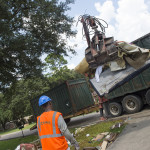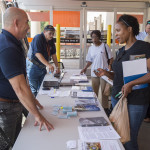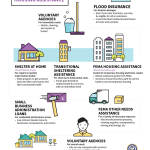

BATON ROUGE, La. – FEMA has awarded the state approximately $146 million to reimburse local entities for expenses related to response and recovery efforts as a result of August’s severe storms and floods.
Here is a breakdown of the funding:
- Nearly $40 million for debris removal expenses in East Baton Rouge Parish.
- More than $6 million for debris removal expenses in Livingston Parish.
- More than $5 million for expenses related to the National Guard’s public safety actions during the disaster response.
- Nearly $95 million for the state’s Shelter at Home program that provides emergency repairs to disaster-damaged homes of disaster survivors.
FEMA continues working with its local and state partners to ensure they are reimbursed all eligible disaster-related expenses.
The funds were made available through FEMA’s Public Assistance (PA) program. The program reimburses disaster-related expenses to eligible local, state and certain private nonprofit entities in 26 designated parishes to repair or replace disaster-damaged facilities and infrastructure.
The 26 designated parishes for PA funding are Acadia, Ascension, Assumption, Avoyelles, Cameron, East Baton Rouge, East Feliciana, Evangeline, Iberia, Iberville, Jefferson Davis, Lafayette, Livingston, Point Coupee, St. Charles, St. Helena, St. James, St. John the Baptist, St. Landry, St. Martin, St. Tammany, Tangipahoa, Vermilion, Washington, West Baton Rouge and West Feliciana.
FEMA typically reimburses 75 percent of eligible PA expenses. However, applicants will be reimbursed 90 percent of eligible PA expenses given the magnitude of the August severe storms and floods. The federal portion is paid directly to the state, which then disburses the funds to the applicants.

Wednesday, Aug. 24, 2016. Debris cleanup begins in Zachary, La. (Photo by J.T. Blatty/FEMA)
More –
Louisiana Gets FEMA Money for Debris Cleanup, Home Repair Program, Public Safety






